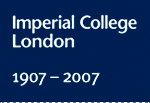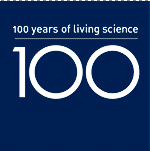Tony Cowley
(Chemical Engineering, 1945)
Imperial College alumnus, Tony Cowley, shares his memories of his time at Imperial College during the War.
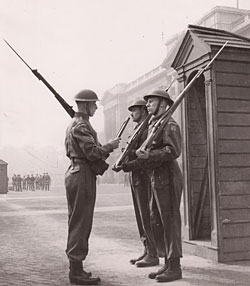 I left school during war time in 1943. I thought to go into the Air Force but my father, who had a dramatic time in the First World War, forcibly persuaded me to use my exemption from call up and go to university. Living in North London I went to Imperial and applied for a place on a mechanical engineering course at City and Guilds. “It is full up” said the person taking applications, so walking down the corridor outside I saw a notice concerning chemical engineering students. A year or two earlier I had talked to the brother of one of my friends at school, who was at the time working for Glaxo, and he had shown me some of his designs, so I had a half knowledge of what chemical engineering might be about. At once I returned, to ask more about it, “No one wants to do that” was the comment. So I put my name down.
I left school during war time in 1943. I thought to go into the Air Force but my father, who had a dramatic time in the First World War, forcibly persuaded me to use my exemption from call up and go to university. Living in North London I went to Imperial and applied for a place on a mechanical engineering course at City and Guilds. “It is full up” said the person taking applications, so walking down the corridor outside I saw a notice concerning chemical engineering students. A year or two earlier I had talked to the brother of one of my friends at school, who was at the time working for Glaxo, and he had shown me some of his designs, so I had a half knowledge of what chemical engineering might be about. At once I returned, to ask more about it, “No one wants to do that” was the comment. So I put my name down.
On the first or second day of attendance all the freshers assembled to hear the Rector (Sir Henry Tizard). He gave a trenchant speech saying all the facilities and staff were present for us to make use of, but there was no compulsion to learn and results were up to you, and with that he swept out. After the regimented day at school, this was an eye opener.
Chemical Engineering proved a delight to me. First you studied fundamentals of mechanical and electrical engineering with chemistry before moving on to more specific chemical process engineering. Our lecturer in organic chemistry, also an authority on fluorine chemistry, suddenly vanished. It was only later that I realised he was whisked off to the atomic bomb project in the US. It seemed to me a very useful and broad brush approach to technology and it still does today.
It was war time and we had to squeeze four terms into one year, but now and then enemy activity interfered. We had to belong to the local Home Guard, and whatever comic programmes are made of it; I can assure you we were deadly serious and trained, when we could, that way. One incident remains in my memory, and that is of a fellow student and life long friend, Peter Beck. He was of Czech origin and had been sent to England by his parents to learn English a year or two before the war and possibly to get him away to safety. Living in London, he joined the Hyde Park Home Guard who were eventually put in charge of the anti-aircraft rocket battery, the rockets being electronically fired. One day when we were in the electrical lab at C&G exploring the characteristics of motors and generators he came in laughing. He had been to an army lecture on electricity, and was told there were two sorts, electricity that flowed down back wires and positive electricity that flowed down red wires.
The lecturers I remembered were M. B. Donald who had come from UCL, due to bombing of the Ramsay Laboratory there, to run the course. I remember him giving details of his time in Chile producing nitrates from guano and the origins of sugar beet sugar extraction in France. Hymus, who lectured on fuel, gave conversions of Chinese weights and measures to Imperial on account of his stay in the Shanghai power station and Saunders & Fishenden whose crystal clear explanations of heat transfer remain with me to this day.
Delays due to enemy action were common and towards the end of the course the Doodlebugs started up. Walking out one lunch hour we heard the drone like an unsilenced motor bike. "Blimey" said a lad repairing windows in Queen's Gate, "We have just got all the new glass in". There were always new strange sounds. During one lecture an unusual and loud sound was heard. Every one dived under the desks only to emerge a few minutes later when it was realised that the noise was caused by the steel wheels of a sack barrow delivering something weighty. Getting on to the tube at Gloucester Road one day, the sirens went off. Going down in the lift to take shelter were two women with kids, "It’s all this bloody science, that’s what it is" observed one. She repeated it all the way down to the platform.
After lectures, if there was time, we found we could attend concerts at the Royal College of Music. This was a free delight, but a memorable one was severely interrupted several times by researchers getting a captured Doodlebug engine to work in the basement of the old Chem Tech building with a corresponding deafening roar.
It was for me a tough time financially and I look on today's students with envy. My parents could not afford much so if I bought a packet of fags, I smoked in those days, I could not afford much for lunch and certainly not attendance at the Union social events. In my last year I stayed at the old hostel in what was the Beit building and this helped finances because we did fire watching which gave us a small subsistence supplement.
I look back with pleasure on my time at Imperial College and despite all difficulties I ended up with an honours degree. If anyone asks me about attending a University I say go, overcome the problems, you will be thankful ever after.Tony Cowley (Chemical Engineering 1945)
© 2007 Imperial College London
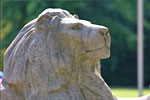
Through the first decade of the twenty-first century the campaign seeks to philanthropically raise £207 million from Imperial’s alumni, staff and friends, and donations from charitable foundations and industry.
Where your support can make a differenceGive now
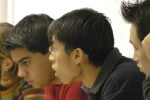
Imperial’s Centenary Year provides an opportunity to recognise and celebrate members of the Imperial community.
View staff and student portraits